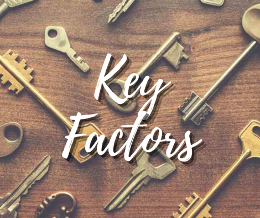
The phrase ‘hormone therapy’ gives way to two types of reactions. Some women want nothing to do with it, believing that artificial hormones have no place when it comes to their health. Other women assume going on hormone therapy is normal and can fix all problems from vaginal dryness to hot flashes. But like anything, there’s a grey area here – one that is often ignored.
In fact, the menopause population grows by about 6000 women each day – that represents about 20% of the workforce. With this population predicted to grow by 4.2% annually through 2023, I think there’s never been a better time than now to address these hormonal issues.
In this article, I’m going to dive into hormone replacement therapy – the good, the bad, and the ugly. I want you to walk away from this article with the knowledge and awareness to make an informed choice regarding whether or not hormone therapy is right for you.
What is Hormone Replacement Therapy?
The North American Menopause Society defines ‘hormone therapy’ as “the prescription drugs used most often to treat hot flashes and genitourinary syndrome of menopause (GSM), which includes vaginal dryness, after menopause” (1).
Basically, these prescription drugs are chemicals that interact in the body in a very similar way to common hormones, such as estrogen and progesterone. And hormone therapy can take on many forms, including pills, patches, gels, vaginal rings, and sprays. Usually, the option a woman chooses depends on her health history, personal preference, and symptoms being treated.
Now, hormone replacement therapy (HRT) isn’t necessarily a bad thing. In fact, in a way, many women use hormone therapy as a way to avoid becoming pregnant. They take the pill which causes certain processes in the body and reproductive system to halt, which means pregnancy cannot occur. Yet, many other women also take it to help combat various symptoms that happen during menopause. These symptoms, such as hot flashes and more, are happening due to hormonal imbalances.
However, this doesn’t mean that I believe all women should be relying on hormone replacement. I think hormone replacement during menopause is a great piece of the puzzle when it comes to addressing symptoms, most importantly replacing vital hormones that contribute to overall wellness, longevity, and how we can age proactively. It’s part of a comprehensive approach. It should be involved in a process where all factors are addressed, including one’s genetics, diet, exercise regime, stress levels, and more.
This is because hormone therapy may mask these symptoms as opposed to solving the possible underlying root cause. It’s okay to use hormone replacement therapy to help you get to a level where you can address the other factors involved but I think we should be careful about fully relying on these hormones or thinking of them as a ‘one-trick pony.’ At the same time, for some women, hormone therapy might work very well. Each woman’s body is similar but different.
Yet, then, there’s the confusion surrounding bioidentical hormones versus synthetic hormones. What’s the difference? Why does it matter?
Bioidentical vs Synthetic Hormones: The Difference
 The key differentiating factor between bioidentical hormones and synthetic hormones is that bioidentical hormones mimic the exact molecular structure of the natural-occurring hormones. In other words, it actually might function better than synthetic versions.
The key differentiating factor between bioidentical hormones and synthetic hormones is that bioidentical hormones mimic the exact molecular structure of the natural-occurring hormones. In other words, it actually might function better than synthetic versions.
Remember, hormones are the messengers of the body. They impact everything – from your skin, nails, muscles, and bone to your energy levels, sex drive, mood, and behaviour. They act on certain parts of the body, unlocking specific processes and actions. Thus, the more accurate and precise they are when compared to naturally-occurring hormones, the better they will function and the more likely what you want to happen in the body will happen.
Okay, so what about synthetic hormones?
Synthetic hormones are not the exact molecular structure of your native hormone, usually due to some alteration of the compound to still mimic its action, yet different. Any modification can create changes in a drug structure, this is called “biosimilar”. This means that they don’t exactly interact the same way. They do a similar job, but it’s not the exact same. When you think about it, it’s kind of like communicating with someone where you’re only getting snippets or pieces of what they’re saying. These are synthetic hormones. Meanwhile, bioidentical hormones ring clear and true.
Why does this difference matter so much? This comes down to the side effects bioidentical hormones versus synthetic hormones have. Research shows that bioidentical hormones come with reduced health risks when compared to synthetic hormones. More specifically, synthetic hormones have a higher risk of breast cancer and cardiovascular disease (2). This is mainly why many experts and women believe that bioidentical hormones are best.
Making Health About Prevention and Optimization
At the end of the day, it’s crucial to take a preventative approach to your health. Optimize your health and wellness the best you can. It shouldn’t be just about scrapping by when we have so much data and resources available to us.
At optimal levels, you perform and feel your best. Consequently, you get the maximum benefits that can last a lifetime – and even expand it. Stay in front of your health. Technology and innovation has granted us the ability to do so. For instance, there is a ton of wearable technology that can give insight into your health. From there, you can use this data to determine what improvements work and what don’t.
Surprisingly, Hormone Replacement Therapy, specifically estrogen-only therapy, actually lowers the risk of breast cancer (3). Taking this a step further, research shows that Hormone Replacement Therapy, especially done safely in symptomatic women starting at the brink of menopause, is not associated with hypertension, diabetes, stroke, and cancer-related deaths (4).
Estrogen, itself, is protective in many ways. It protects your bone, heart, brain, circulatory vessels, teeth, and eyes. It can also prevent an increase in abdominal fat caused by high cortisol (stress).
It’s no secret that as we age, our risk of cardiovascular disease, strokes, osteoporosis, Alzheimer’s Disease, and dementia increase – and this all happens during a massive decline in our hormonal health. The truth is that these advanced effects of deterioration and aging can be linked to unbalanced hormones.
Know Your Hormones!
All in all, it’s important to not blindly put anything in your body without getting the proper information first. Get the full story and make an informed choice. It’s important to fully understand hormone therapy as opposed to fearing it. When you know the ins and outs of it, you’ll feel empowered and be able to make the best choice for your life and your body.
Ready to make informed choices and take control, let me help you. Schedule a chat today to restore your hormonally happy life. Check out the Facebook Group where I go live weekly and talk about tricks and tips you won’t want to miss!
Wellness & Epigenetics Coach, Consultant, Physician, Health Advocate, Mentor & Author.







